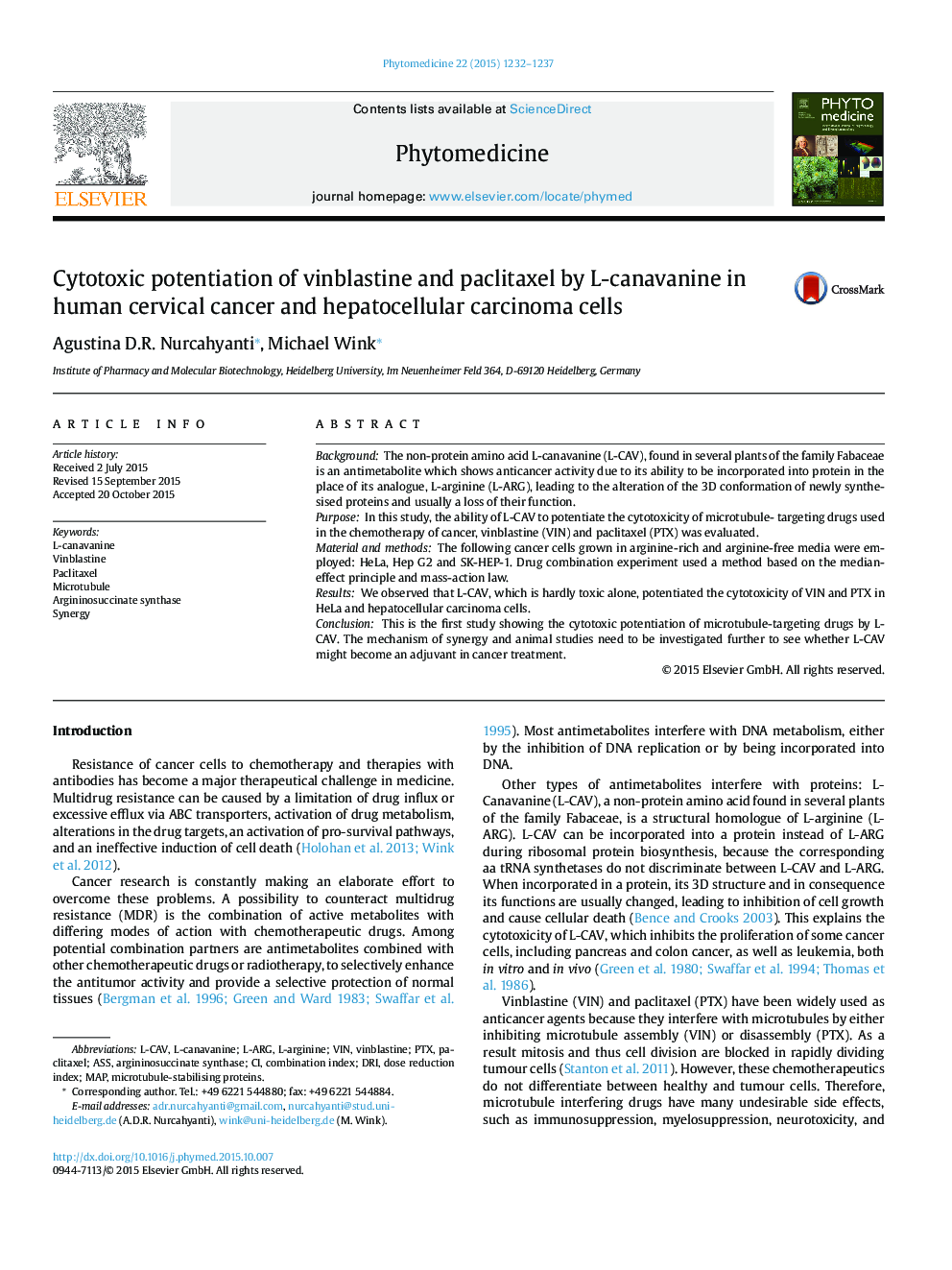| Article ID | Journal | Published Year | Pages | File Type |
|---|---|---|---|---|
| 2496290 | Phytomedicine | 2015 | 6 Pages |
BackgroundThe non-protein amino acid L-canavanine (L-CAV), found in several plants of the family Fabaceae is an antimetabolite which shows anticancer activity due to its ability to be incorporated into protein in the place of its analogue, L-arginine (L-ARG), leading to the alteration of the 3D conformation of newly synthesised proteins and usually a loss of their function.PurposeIn this study, the ability of L-CAV to potentiate the cytotoxicity of microtubule- targeting drugs used in the chemotherapy of cancer, vinblastine (VIN) and paclitaxel (PTX) was evaluated.Material and methodsThe following cancer cells grown in arginine-rich and arginine-free media were employed: HeLa, Hep G2 and SK-HEP-1. Drug combination experiment used a method based on the median-effect principle and mass-action law.ResultsWe observed that L-CAV, which is hardly toxic alone, potentiated the cytotoxicity of VIN and PTX in HeLa and hepatocellular carcinoma cells.ConclusionThis is the first study showing the cytotoxic potentiation of microtubule-targeting drugs by L-CAV. The mechanism of synergy and animal studies need to be investigated further to see whether L-CAV might become an adjuvant in cancer treatment.
